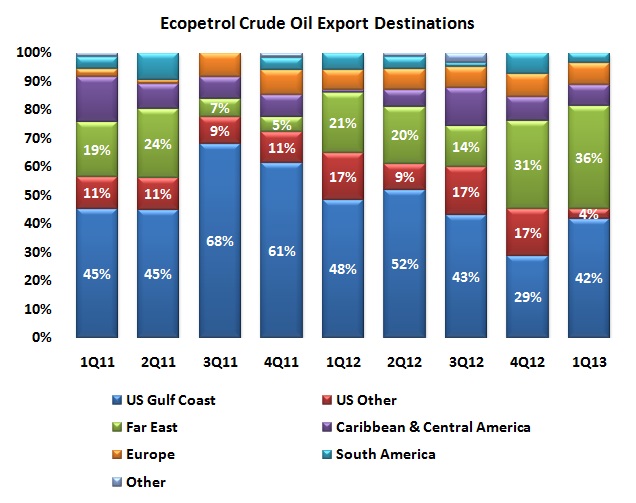Colombian oil producer Raven held a socialization meeting to present the project diagnostic for a pipeline that will connect its operations with the Bicentennial Pipeline.
The Banco de Bogotá has been one of the lead banks to finance the US$5B needed for all three phases of the Bicentennial Pipeline and bank executives expect this role to continue as the pipeline becomes operational.
Ecopetrol’s Coveñas terminal is the first among members of the Regional Association of Petroleum, Gas and Biofuel Companies in Latin America and the Caribbean (Arpel) to receive a cross check audit as part of an integration process.
More than 40 points of the Catatumba pipeline were detonated over the weekend creating an environmental emergency as crude flows into the surrounding area.
Ecopetrol could have the requirements and details of a modernization project of the Barrancabermeja Refinery ready by the end of the year, which would mean it would award contracts to do the work during 2014.

Every quarter Ecopetrol helpfully publishes the distribution of its crude oil exports. Other producers would have different profiles but considering the NOC’s size both in terms of production and commercialization, this is a good indicator of the country as a whole.
The Minister of Mines and Energy Federico Renjifo told bankers at a recent banking convention that growing hydrocarbons production in Colombia requires significant investments in coming years, creating an opportunity for the financial sector.
The Colombian hydrocarbons sector will receive COP10Tr (US$5.26B) in infrastructure investments over the next six years, says the vice minister of energy Orlando Cabrales (formerly the head of the National Hydrocarbons Agency — ANH).
Once fully operational in August, the Bicentennial Pipeline will move 110,000 barrels of oil daily to the expense of around 3300 trucks that will no longer be used to transport crude.
Members of the municipalities of Munchia, San Luis de Paleque and Trinidad have met with oil company representatives to discuss the poor quality of the department’s roads.